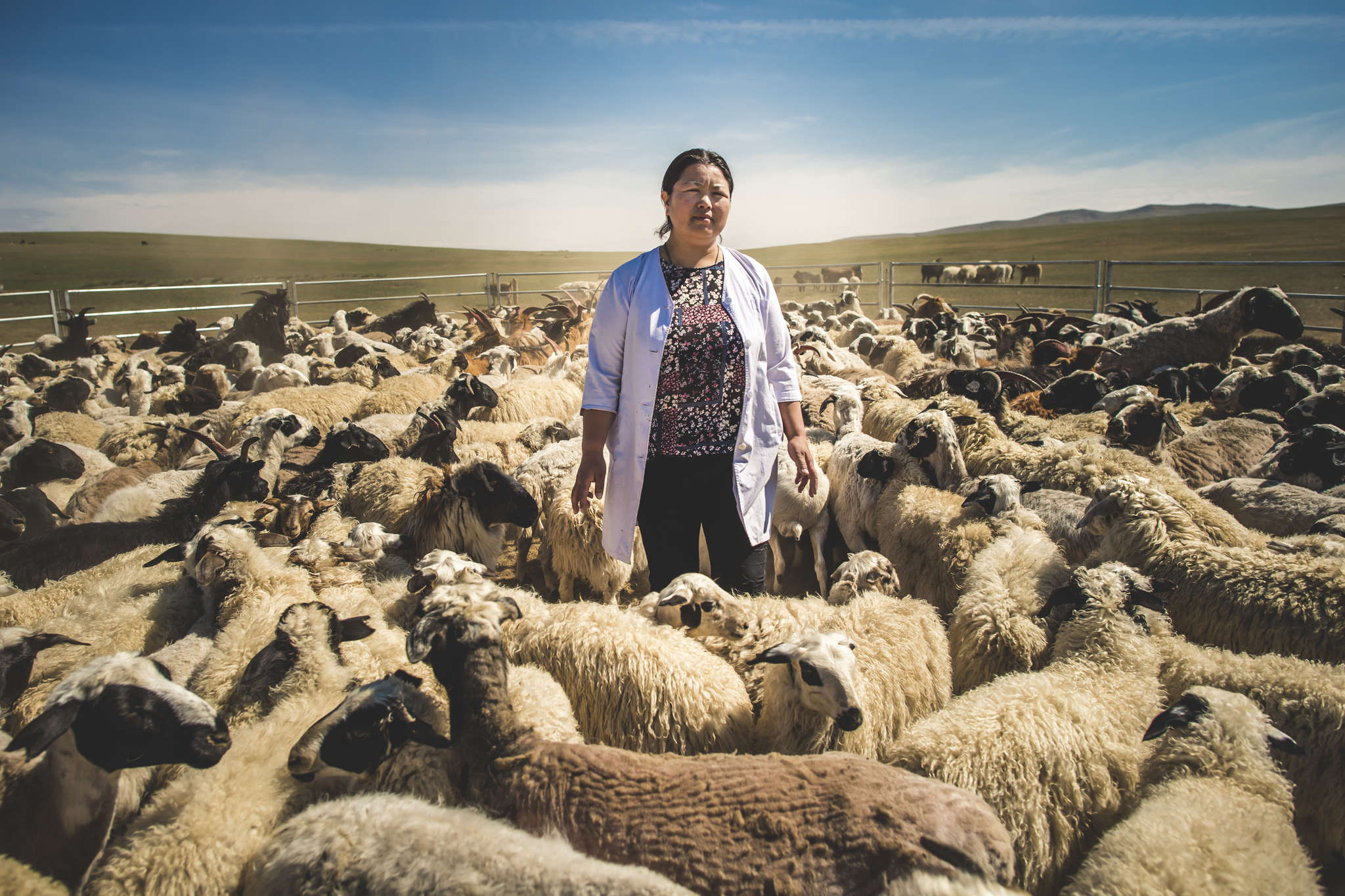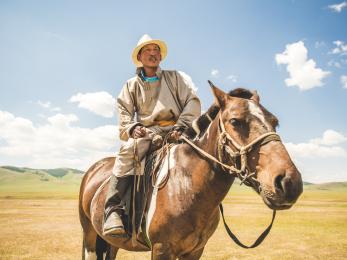Breadcrumb
Mongolia
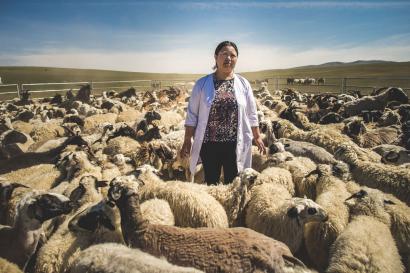
Mercy Corps worked in Mongolia from 1999 to 2021, helping to reduce vulnerability and increase opportunities for rural communities. After 22 years and hundreds of thousands of lives impacted, we decided it was time to close down our operations and let our amazing local partners take the lead.
The context
With a population of more than 3 million people across 603,900 square miles, and less than five people per square mile, Mongolia is the most sparsely populated country in the world. A third of the total population live in rural areas.
Winter and extreme weather are a fact of life in Mongolia—short hot summers and long cold winters make life challenging for the 181,000 rural households who raise livestock across Mongolia’s vast tracts of rangeland. Dzuds—harsh winter storms that contribute to drought conditions and poor forage availability in summer—are becoming more intense and frequent with climate change. When dzuds destroy pastureland critical to feeding large herds, rural livelihoods are devastated. Since 2000, dzuds have killed over 21 million livestock.
Mongolia has been an independent state since the fall of the Qing Dynasty in 1911 and had close ties with the Soviet Union up until the end of the Cold War. In 1990, Mongolia began the transition from a socialist state to a democracy, participating in the global free market economy. Although this transition came peacefully, many social and economic challenges arose as the Mongolian people and government adjusted to new governance and economic systems.
In this new era of growth and competition, there was a sudden need to adapt to a new economic system, while still preserving traditional ways of life. Tens of thousands of Mongolians started their own businesses and animal herders, which represent the main source of income for rural communities, needed to gain knowledge of the free market to adapt their practices to harness emerging opportunities.
Significant progress has been made since 1990, and we believe that local stakeholders are well placed to lead development efforts moving forward. Rural markets are thriving, Mongolian civil society has strong relationships with the government and communities, and the government will continue to support economic growth. Because of this, we feel like it is the right time to celebrate the progress and sunset our operations.
Our impact
Mercy Corps Mongolia was established in 1999 to address the need for innovation in economic development. Over the next 22 years, we partnered with local and national government agencies, local organizations, businesses, and communities to help ensure that rural livelihoods are resilient to economic and environmental challenges while retaining distinct and vital cultural traditions. We brought bold, forward thinking to the efforts already underway as the country transitioned to a thriving free-market economy and democracy.
Our work centered around the following three sectors:
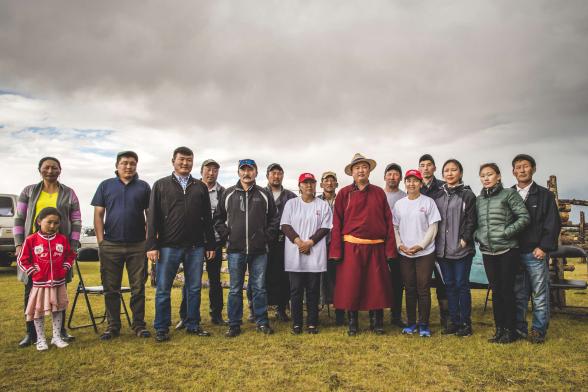
Economic development
Mercy Corps helped develop, diversify, and strengthen businesses critical to Mongolia’s rural economy, particularly in the livestock sector. We supported entrepreneurs and business owners to develop business skills, access key information, and obtain financial services critical for growth and diversification. We were an early adopter of a market systems approach, focusing on increasing market access and negotiating power for rural livestock producers through the formation of herder groups and cooperatives.

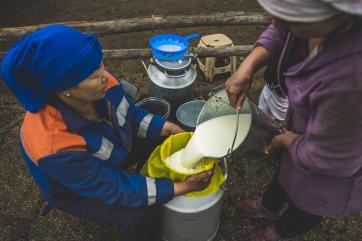
Disaster risk reduction
Mercy Corps worked with the Government of Mongolia to strengthen the capacity of rural communities and businesses to prepare, respond to, and mitigate impacts of natural disasters. The livestock sector was particularly vulnerable to extreme weather that could wipe out economic gains overnight if not properly managed. That’s why we helped herders, farmers, veterinarians, and emergency personnel to develop and adopt cutting edge disaster plans, early warning systems, SMS technology for on-demand weather information, and science-based health and rangeland management practices.

Good governance
Mercy Corps partnered with the government, local organizations, and the private sector to develop and implement practices and policies that are transparent, responsive, and inclusive of rural communities. We worked to strengthen civil society organizations so they can effectively bridge the gap between citizens and the government, increase community engagement, and elevate the specific needs of rural communities into the higher level development plans for economic development and disaster preparedness.
